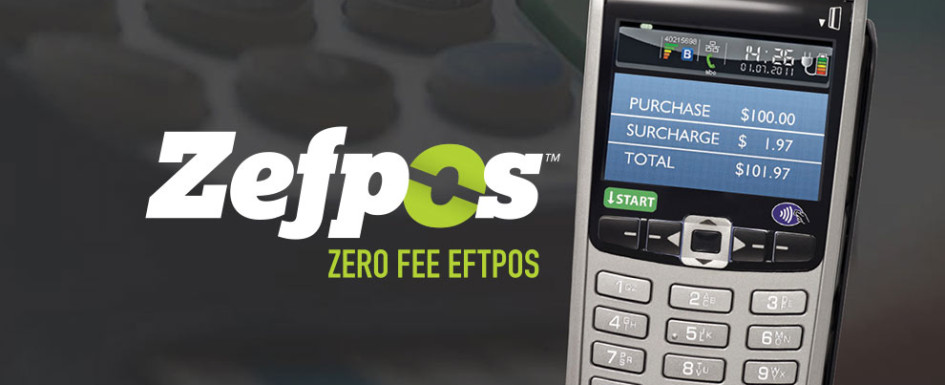According to consultancy firm Capgemini and Royal Bank of Scotland, Australia has the 4th highest rate of non-cash payments on earth, increasing by 7 percent per year. According to the RBA, the average surcharge for Visa / Master Card is 1.9% and 2.9% for American Express. The implications of this, for a business operating on a 10% margin, are staggering. They’re essentially sacrificing 20-30% of their profit just to receive payment. For a motel operating on a 30% margin it’s around 10%. These costs are often simply accepted as part of doing business, but it’s only going to get worse from here.
Seemingly overnight, tap-and-go services have become ubiquitous and with them, even greater stacking of bank fees imposed on merchants. eWallets allow mobile phone payments and are shaping up to be the next emerging technology in Point Of Sale. Apple, Google and Samsung are locked in a 3-way battle for market share, no matter who wins, the loser will surely be merchants faced with yet more fees as customers begin to demand to be offered these added payment services.
Until now, merchants have chosen to absorb the fees and increase their total retail price for all customers; or to add a surcharge onto the bill – but this has been done in a clunky and ineffective manner by trying to increase the grand total by the percentage of fee, including GST (even though no GST is charged to the fee) and then deducted as an expense on their book keeping (with the fee also added to the fee). For an onsite manager wishing to accept rent deposits or bond payments by credit card, it’s a nightmare with surcharges and fee adjustments wreaking havoc with your trust account.
The continued creep of merchant fees has made the Australian market ripe for emerging Fintech companies disrupting the traditional banking sector to effectively and dramatically improve merchants’ bottom line. Companies such as Zefpos have recently entered the Australian market with a much needed process that easily and instantly splits the fee out of the transaction and adds it as a separate cost, borne by the purchaser rather than the merchant. It’s fully ATO and RBA compliant, the fee is highly competitive with conventional systems, and it ensures that the merchant incurs absolutely no cost to accept all major credit card and EFTPOS services from their clientele. (The merchant keeps 100% of their EFTPOS and credit card income.)
Zefpos provides a standard EFTPOS terminal (or terminals, as required, wired or wireless as required) with no setup fee, no merchant fees, no ongoing fees and no rental fees for qualifying merchants. And the merchant doesn’t even need to switch banks as the fees are completely handled by Zefpos with same day clearance into the merchant’s account. There are no other EFTPOS products in Australia offering such a service at this time, making them first-to-market with a highly innovative model.
Zefpos enables merchants to be more competitive without bank fees eroding their profits. This equates to more business with lower cost of doing business. The simplified process increases productivity on the front desk and in the back office. Accepting all cards means consumers have the choice of how they want to pay. Zefpos is the ideal choice for any onsite manager (permanent or holiday), hotel, restaurant, bar, motel or resort operator. If you’d like to know by exactly how much Zefpos can increase your business’ bottom line, simply call me on 0407769944 or visit http://www.theonsitemanager.com.au/zefpos/ to arrange an easy, obligation-free EFTPOS Health Check to see what your business can save.

Does the question of the Card Holder’s ‘capacity to pay’ get resolved at the point of purchase?
Is there any risk that our trust account suffer from a charge-back when someone exceeds their credit limit?
Great question. Zefpos is a real time terminal service so credit limits / fund availability is automatically checked at the time of transaction. If a purchaser is exceeding their credit limit beyond the threshold set by their bank, the EFTPOS terminal will decline the payment – there is absolutely no charge to either the merchant nor the purchaser in such a scenario.
In GENERAL banking terms, a charge-back occurs when credit card fraud has been reported against a card. Usually the bank will investigate the complaint and request that the merchant substantiate the legitimacy of the transaction. If the merchant can’t prove that the card holder made the purchase, funds are taken back by the bank, and a charge back fee is also applied, usually in the order of around $30 in my experience.
However in the case of an onsite manager collecting Bond and Deposits, there is a voluminous quantity of supporting evidence that is being provided by the purchaser to verify their identity. All of which can be used in the case of a dispute, to clearly show that the purchase was legitimate and carried out by the card-holder and not a case of fraud. You have their driver’s licence, healthcare cards, passports, bills, signatures on lease agreements, etc, etc. I actually can’t think of a situation less likely to be prone to credit card fraud.